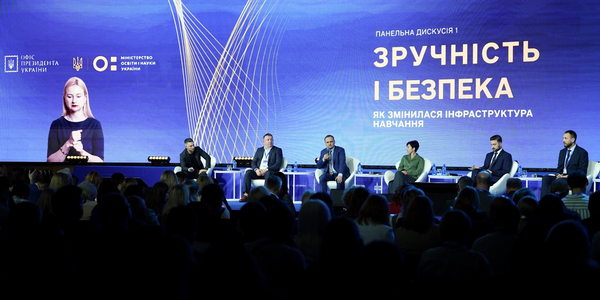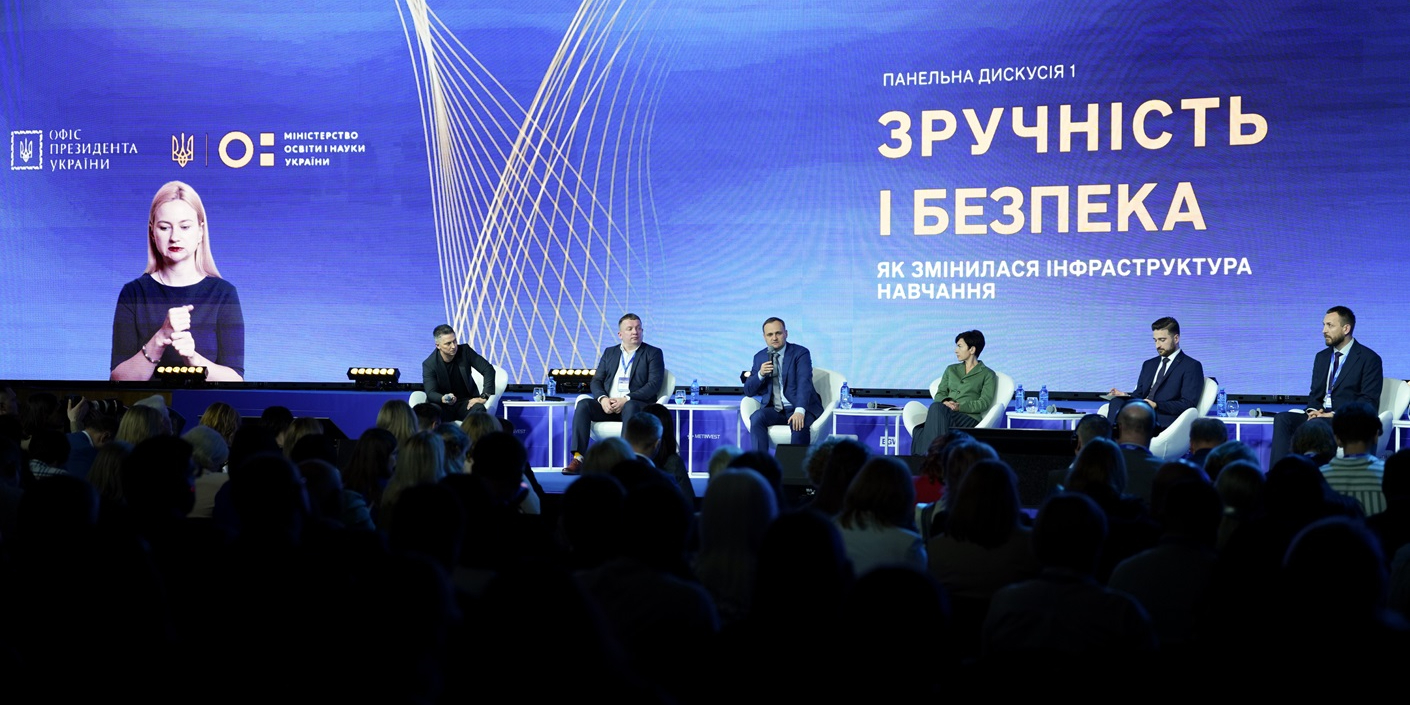Nearly 200 underground schools to be built by the end of the year, — Oleksii Kuleba
During the ‘Education of the new Ukraine’ forum, Oleksii Kuleba, Deputy Prime Minister for Restoration of Ukraine — Minister for Development of Communities and Territories of Ukraine, emphasised that education is one of the state’s key restoration priorities, particularly in frontline areas.
‘The first thing we hear during our visits to communities that are constantly under fire is “Restore the school”. Not water, not electricity, not housing — the school. Because there are children who need to study there. As long as there is a school, the community is alive,’ said Oleksii Kuleba.
In his speech, Mr Kuleba emphasised that, in the conditions of a full-scale war, schools perform not only an educational function, but also social, security, and unifying functions. This is why the state is investing in safe, modern, and sustainable educational infrastructure.

One of our priorities today is the construction of underground schools. These are fully-fledged educational institutions complete with shelters, school kitchens and canteens, libraries, and gyms. Construction is underway in seven frontline regions: Kharkiv, Zaporizhzhia, Mykolaiv, Dnipropetrovsk, Kherson, Chernihiv, and Sumy. Around 200 such schools are expected to open by the end of 2025.
‘Recently, the eighth underground school, which can accommodate 1,000 children in two shifts, opened in the Zaporizhzhia region. It was built in less than six months. According to the headteacher of one of these schools, the children had not seen each other face-to-face before the fourth grade, having studied online due to the pandemic, war, and constant attacks in previous years. This demonstrates the importance of building safe educational facilities to ensure quality education. In total, more than 4,000 educational institutions have been destroyed or damaged during the full-scale invasion. Over 1,300 have already been restored and hundreds more are undergoing reconstruction. Currently, 80% of schools in Ukraine have various types of shelters,’ said Oleksii Kuleba.
All projects in the education sector are managed via the DREAM digital ecosystem, which offers an overview of the entire process, from construction to equipment procurement, across the whole country. A total of 4,370 educational projects have been registered on DREAM, with a total budget of almost UAH 200 billion. Over a thousand of these projects have already been funded.

Special attention is given to the School Nutrition Reform introduced by the First Lady of Ukraine. High-quality food, modernised school kitchens and canteens, and appropriate conditions are all integral to a fulfilling school experience, even during wartime.
Cohesion projects are also being developed, including ‘Shoulder to Shoulder: All-Ukrainian School Leagues’ initiative. Over 700,000 children from 9,000 schools have joined the competition. Forty thousand teams, including those who live and study in frontline regions, are competing in seven sports.
‘In essence, we are talking about human capital and how to preserve it. If a community has a school equipped with a shelter, library, school kitchen and canteen, and gym, it means that the community has a future. As a state, we must give parents a clear answer: the school will be rebuilt, it will function, and it will remain open even during wartime,’ summed up Oleksii Kuleba.
The Deputy Prime Minister also thanked Oksen Lisovyi, Minister of Education and Science, and Mykhailo Fedorov, Deputy Prime Minister for Innovation, Education, Science, and Technology, for their systematic work in vocational and higher education.

Tags:
Oleksii Kuleba education safety
Source:
Міністерство розвитку громад та територій України

23 February 2026
Моніторинг громад – січень 2026
Моніторинг громад – січень 2026
Як змінюється стан справ у територіальних громадах? Як на їхню спроможність впливають безпекові умови в регіонах та...
23 February 2026
У Мінрозвитку обговорили пріоритети державної політики щодо тимчасово окупованих територій України
У Мінрозвитку обговорили пріоритети державної...
Під головуванням заступника Міністра розвитку громад та територій України Олексія Рябикіна відбулося обговорення...
23 February 2026
Відкритий діалог заради розвитку громад: які...
Публічні консультації, круглі столи, презентації досліджень, експертні зустрічі — Комітет Верховної Ради України з...
23 February 2026
Профорієнтувати, навчати та заробляти. У Васильківському коледжі створили сучасний кулінарний хаб
Профорієнтувати, навчати та заробляти. У...
Замість старих 40-літрових каструль – «кулінарний комп’ютер» iVario, замість радянської плитки – керамограніт і...